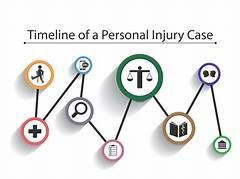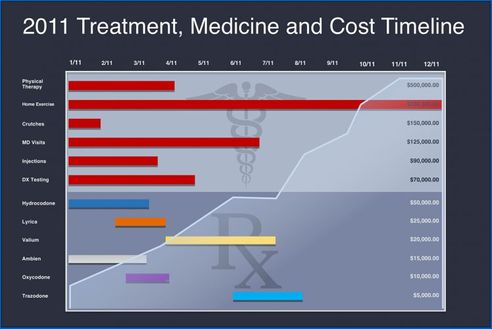When individuals suffer injuries or loss due to accidents, negligence, or medical errors, they often find themselves navigating the complexities of personal injury, wrongful death, or medical malpractice cases. One question that weighs heavily on victims is: How long does it take to reach a settlement? The answer isn’t one-size-fits-all—it depends on several key factors, ranging from the severity of injuries to the legal intricacies of the case.
Navigating the Road to Resolution: How Long Does a Personal Injury Case, Wrongful Death, or Medical Malpractice Suit Take?

Understanding the Timeline
The duration of these cases can vary significantly:
Personal Injury Cases: For minor injuries and clear-cut liability, settlements can often be reached within 3 to 9 months after medical treatment concludes. Moderate cases may extend to 1 to 2 years, while complex cases can take 2 to 3 years, or longer.
Wrongful Death Cases The timeline for wrongful death cases depends on factors like disputes over liability and damages. On average, these cases can take 1 to 4 years. If the case goes to trial, it may extend further.
Medical Malpractice Cases Due to the complexities involved, such as expert testimony, medical record analysis, and contested liability, medical malpractice suits often take 2 to 5 years to resolve, with some cases lasting even longer if litigation is involved.

Factors That Influence the Timeline
Several factors can impact how quickly—or slowly—these cases are resolved:
Severity of Injuries or Loss: Extensive medical treatments, rehabilitation, or grief may delay settlement discussions.
Liability Disputes: Cases involving shared fault, complex medical issues, or unclear circumstances take longer to resolve.
Expert Testimony: Medical malpractice and wrongful death cases often require detailed analysis from experts, which can add time.
Insurance Negotiations: Insurers may delay settlements to negotiate lower payouts, thereby prolonging the process.
Litigation vs. Negotiation: Cases that go to court typically take longer than those settled through direct negotiations.

How Victims Cope During This Time
The prolonged timeline for resolution can be overwhelming for victims and families. Many rely on the following strategies to manage their medical and living needs:
Legal Funding: Pre-settlement funding offers financial support while awaiting case resolution.
Insurance Claims: Health and life insurance payouts can help cover medical expenses and daily living costs.
Government Assistance: Victims may be eligible for aid programs such as Medicaid, Social Security Disability Insurance (SSDI), or the Supplemental Nutrition Assistance Program (SNAP).
Community Support: Family, friends, and nonprofits often provide financial and emotional assistance.
Negotiating Medical Bills: Hospitals and providers often offer payment plans or hardship discounts to patients facing financial hardship.
Therapy and Support Groups: Emotional coping is vital, and victims can benefit from counseling and advocacy groups for guidance.
While the challenges are immense, these resources enable victims to endure the waiting period while maintaining their physical and emotional health and stability.

How the Professional Care Management & Advocacy Group in Florida Supports Victims
The Professional Care Management & Advocacy Group in Florida provides essential services to help victims and their families navigate the complexities of their cases, manage their needs, and prepare for legal proceedings.
Care and Financial Management
Coordination of Medical Care: Assisting victims in accessing the right treatments, specialists, and rehabilitation services.
Financial Guidance: Helping manage medical expenses, negotiate bills, and file insurance claims to ease financial strain.
Safety Coordination: Ensuring victims’ homes are safe and accommodating their physical needs.
Medical Chronologies and Their Role in Trials
Medical chronologies created by The Professional Care Management & Advocacy Group in Florida play a pivotal role in litigation. These detailed timelines provide:
Clear Medical Narratives: Organizing a victim’s medical history and treatments into an easy-to-follow timeline.
Supporting Evidence: Highlighting key events and treatments that corroborate claims of negligence or injury severity.
Expert Testimony Support: Giving attorneys and experts a well-documented, concise record to reference in depositions or at trial.
Enhancing Credibility: Demonstrating the victim’s consistency and the legitimacy of their claims with precise, organized documentation.
These medical chronologies serve as a foundation for strengthening legal arguments, ensuring every detail is accounted for and presented effectively in court.
Legal Support During Depositions and Trials
Deposition Preparation: Helping victims understand the deposition process and ensuring they feel confident during questioning.
Trial Assistance: Preparing exhibits, medical chronologies, and supporting expert testimony to build strong legal arguments.
Emotional Advocacy: Providing emotional support to victims and families throughout court proceedings.
By combining medical care management with legal consulting expertise, this group ensures victims receive both practical and emotional support during every stage of their case.

Conclusion
Whether it’s a personal injury, wrongful death, or medical malpractice case, patience is key to achieving justice. These cases may require months—or even years—but with the right resources, victims and families can endure the process and find closure.
The Professional Care Management & Advocacy Group in Florida stands as a beacon of support, offering care, expertise, and advocacy to help victims navigate their journey with confidence. By addressing medical, financial, and legal needs—including depositions and trial preparation—they empower victims to overcome challenges and work toward resolution, recovery, and hope.
